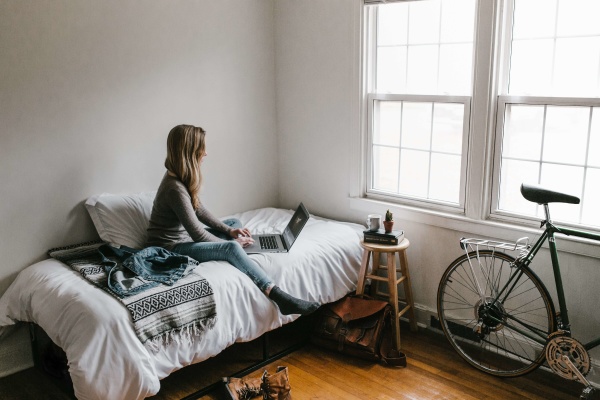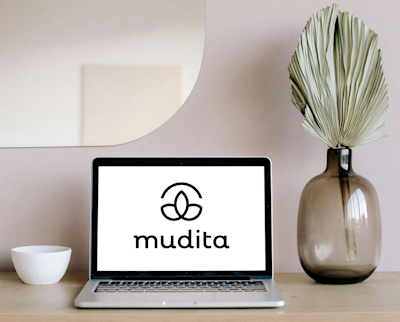
Track Your Healthy Self-Care Habits. Get to Know Them!
There are a lot of self-care habit tracking techniques out there. We wanted to share a few ideas to inspire you. The main habits we’d like to help you track include social, health, physical, mental or emotional and overall routine. The tips in this blog post will help you to make the most of your time indoors.
Habit tracking apps are incredibly popular but if you’re looking for offline alternatives, a pen and paper work just as well. We might spend a lot of time feeling as though we’re not getting enough done, which makes sense.
We’ve been forced to slow down. Tracking the way you spend your time can help you feel more in control during times of unexpected chaos, when things are happening that you can’t control. It can help you deal with stress and anxiety.
The trick is not to beat yourself up about it. You’re allowed to be less productive during a pandemic. It makes sense that you’re more distracted, that you’re struggling with work or unable to concentrate as well as you would under normal circumstances.
Track your social habits.
If you’re stuck inside, do not despair! There’s still hope, text a friend and ask them if they’d like to chat. Sometimes, a phone call can make all the difference.
Science shows that hearing the voice of someone you care about (social vocalizations) can release oxytocin in humans.[1] Isn’t that wonderful? You can make yourself and someone else feel a little bit better, simply by calling them or asking them to call you.
Try to make a note in your calendar, in a diary, notebook, journal or on a piece of paper of all the people you miss that you’d like to get in touch with. It can be friends you haven’t spoken to for a while or even a family member you spoke to recently.
Schedule time into your day to communicate with others, even a simple email, message or SMS will make a huge difference to someone who might feel lonely. Track the emails you’ve sent, try not to miss anyone important to you.
Write a list of social activities to try when you’re able to spend more time with other people. Think of all the events you enjoy doing and plan ahead! Then, track them as soon as you’re able to do them!
Compliment people where possible, especially your colleagues, let them know when they’re doing well. Be grateful for your team. If someone does something out of the ordinary for your company, support them, thank them. Keep a note of and track who has done well and make sure to find something positive to say to those you haven’t complimented in a while.
Track your health habits.
Keeping an eye on your health and tracking how you feel from day to day is especially crucial at the moment. The news is full of tutorials on how to correctly wash your hands, how to dispose of tissues and how to stop germs spreading but for so many of us, this wasn’t anything new.
Then it turned out that there were some people who genuinely weren't washing their hands correctly (twenty seconds minimum, with soap) after using the toilet, before eating or after being outside. There are some tips below that might help you.
If you feel unwell, create a ‘symptom log’, note down how you feel from day to day. If you’re unable to do it yourself and you have someone else there, ask them to help you.
Remember the basics, go back to doing what you were taught to do as a child. Brush your teeth, wash your hair, take a shower, cut your finger and toenails etc. Sometimes, when we’re not looking after ourselves, these simple hygiene habits are often missed. Make a note of everything you do so that even when you’re feeling low, you get it done.
Try to eat more healthily and if you’re struggling, buy and take vitamins, minerals, supplements, powders, etc. to at least maintain some level of nutrition. There are even meal replacements that could help you such as Huel, Jake Food or similar products as they often contain everything you need nutritionally. Track your daily food and drink consumption so that you can make improvements if necessary.
If you have bad habits, health wise, try to track how long you can abstain from the things that might be affecting you in a negative way. If you smoke, eat too much fast food or too many sweets, drink too much alcohol or soda (fizzy drinks), try to stop and track how long you can stop for. If it’s been five days and you end up giving in to a craving on the sixth day, don’t give up. On the seventh day you can start again and see if you can gradually stop. It may take a few attempts but it will be worth it!
Track your physical habits.
Never before have there been as many free trials of health and fitness apps. Gym trainers are training people online, some even for free using the use of Instagram and Facebook. Now is the time to get started with yoga or simple home exercises.
Find a trainer you like on YouTube or through a relevant application and spend at least half an hour a day doing some form of exercise. Even a couple of stretches every now and again will make a difference. Track how long you spend exercising and the kind of exercises you’re doing.
Try adding weight to your usual home routines such as doing the dishes, hoovering (vacuuming) or dusting in a weighted vest. Make sure you choose a weight that you can manage. It’s also worth noting that you shouldn’t wear it constantly as you may injure yourself if you aren’t careful. Track when you wear it and what you do whilst wearing it.
Join a group workout online, there are a lot of apps doing live workouts and live events where a lot of people take part together. This is a nice way of maintaining a community spirit when you’re stuck indoors.
Track your mental habits.
Looking after your mental health means understanding how you feel and why you feel that way. Sometimes, it can be hard to really figure out what it is that’s making us feel a certain way, so it’s useful to track your emotional states and work out which situations may have triggered specific reactions in you. Getting to the cause of a problem, is really important.
Try to meditate or practice mindfulness and keep track of your progress. If you’re still skeptical, in our post entitled The Science Behind Mindfulness and Meditation, we go into detail about the evidence behind mindfulness and meditation. We’ve also touched upon some of the ways you can benefit from meditation.
Know when to seek help and don’t be afraid to do so. We have a list of mental health resources which may help you. Remember that it’s OK not to be OK. Tracking the resources that help you most and coming back to them during difficult periods will enable you to feel more in control. If a podcast helps you, listen to it. If you need to speak to a professional, call one. There are so many options out there.
Track the way you’re feeling with a mood tracker. In one of our previous posts entitled Decluttering Your Emotions, we created one for you to download and print to help you declutter your emotions. Emotional habits that can be tracked include
Track your routine habits.
Sometimes, forgetting to keep track of our routine habits can lead to overeating, overworking, overindulging, etc. If you have a specific routine, it’s a good idea to keep track of it.
Use a time tracking tool to track your work day. Track your progress when you’ve finished a task by adding it to a summary, look at what you manage to achieve on a daily basis and plan what you intend to do tomorrow.
Try something new and keep track of it. If there are books you wanted to read, films or series you wanted to watch, new recipes you wanted to cook, something you wanted to learn such as coding or a foreign language, whatever it is, give it a go! There’s nothing stopping you from trying new things whilst at home.
Housework tracking, this is an easy one to implement. Choose specific days for specific tasks and track what you do when you do it. How long do you spend on the dishes? Should they be done daily? Yes. How long do you spend putting a wash on (doing laundry)? Should it be done daily? Well, it depends on how many people are in your household and how much washing (laundry) you have!
Make sure you track bills that need to be paid. Keep an inventory of the things you use and watch out for the everyday essentials which may be running out (food, drinks, toiletries etc.) that could be ordered online.
We hope that you find at least one of these tips useful, let us know if you have any more ideas or if we missed anything. Do you already use a tool to track what you do? Is it online or offline? Does it help you feel more in control of your day?
If you’re interested in sharing your experiences with us or writing a guest post for us, send us an email via hello@mudita.com! Please feel free to get in touch via social media (send us some photos or videos too), you can find us on Facebook, Twitter and Instagram, let’s connect!
To learn more about Mudita, take a look at our website and our other posts. If you enjoyed reading this article, please share and recommend it!
Related stories

Simple Ways to Stop Getting Distracted
Learn simple ways to stop distractions with Mudita Kompakt and Mudita Harmony. Reclaim focus, reduce screen time, and live more intentionally with mindful tech.

Desk-scaping: The art of decluttering your workspace
A decluttered space eliminates distractions and does not disrupt the flow of your work.

The benefits of napping for productivity and overall health
Naps not only provide a revitalizing break, restoring your energy, but they also enhance focus, productivity, and nurture your overall health & well-being.
If you'd like to receive the best stories from our blog, keep up to date with our progress and get notified about our product releases and special discounts.